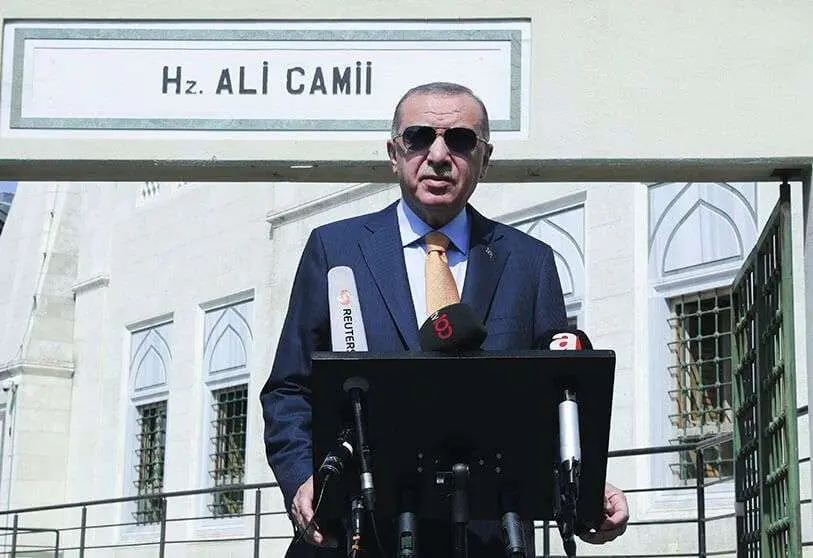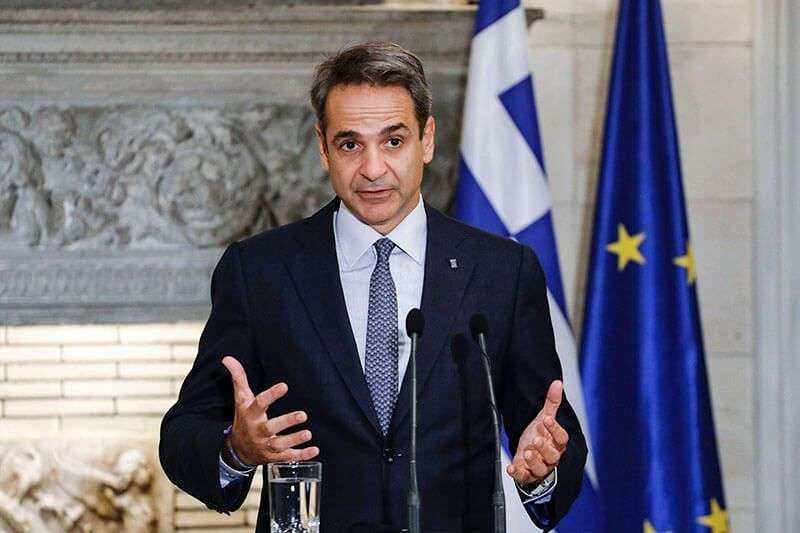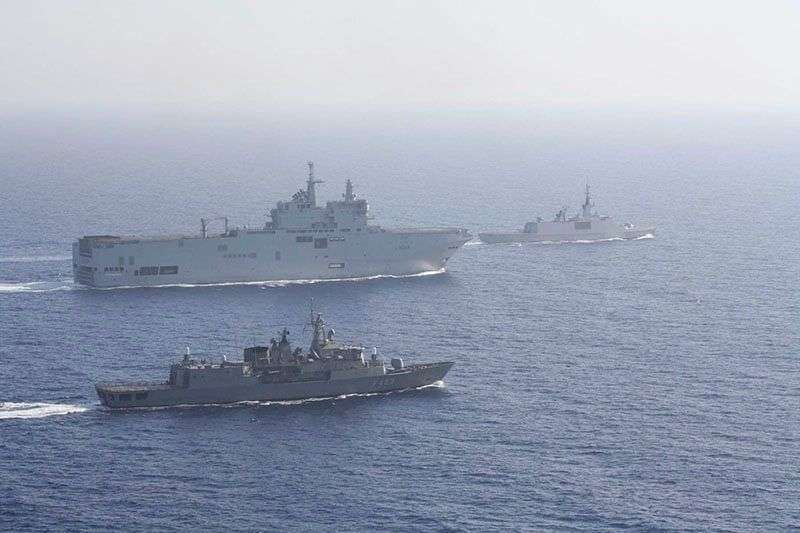Turkey opens a dialogue with Greece to ease tension in the eastern Mediterranean

Recep Tayyip Erdogan wants to give diplomacy a chance. The Turkish President has shown himself ready this weekend to resume the dialogue with Kyriakos Mitsotakis, Prime Minister of Greece, in order to reduce the tension over the delimitation of the exclusive economic zones in the Eastern Mediterranean. Despite this, the Turkish leader indicated that the talks could be affected if the European Union's partners, who are meeting on September 24 and 25 to establish a common position on Turkish expansionism, threaten the Eurasian nation with further sanctions.
Turkey and Greece, both members of NATO, are competing for exclusive economic zones in the eastern Mediterranean. The tensions were triggered last month when Turkey sent the ship Oruç Reis to search for gas and oil in the waters that Greece claims as its own. European Union member Greece condemned the move as illegal and pressed, along with Cyprus, for a strong response from EU leaders when they meet on Thursday. Ankara withdrew the Oruc Reis vessel last week. It described the move as a routine maintenance stop but later said it opened up the chance for diplomacy to reduce tensions with Athens.
“At this point, the climate has become much more suitable for negotiations to begin,” presidential spokesman Ibrahim Kalin told Dogan News Agency. Last month Greece and Turkey were on the verge of resuming those “exploratory” talks, suspended in 2016. But Turkey broke off contact and sent Oruc Reis into disputed waters after Greece signed a maritime demarcation deal with Egypt, angering Ankara.
"If we returned Oruç Reis to the port for maintenance, it also means something. "Let's give diplomacy a chance, let's put forth a positive approach for diplomacy. Greece should also positively meet this approach of ours, and let's take a step accordingly," Erdogan said.

Erdogan has had talks with EU Council president Charles Michel, who chairs the meetings of EU leaders, and German Chancellor Angela Merkel, who is seeking to ease the crisis. But Cyprus, protesting the presence of two Turkish exploration vessels in waters off the divided island, insists on sanctions against Ankara and has blocked EU action against Belarus for alleged election fraud until its demands are met.
“Threats of blackmail and of sanctions against Turkey does not give results,” Kalin said. “European politicians should know this by now.” insisted the Turkish presidential spokesman. “We want to give diplomacy as much space as possible, by listening to every sincere call,” Erdogan said in a tweet this weekend. With this vision, we will continue to defend any drop of water and area of our country to the end.”
Erdogan has already stated on Friday that he is willing to talk to the Greek Prime Minister, Kyriakos Mitsotakis, to address the tensions between the two countries over maritime rights in the Eastern Mediterranean. Erdogan explained to journalists after praying in a mosque in Istanbul that some European leaders, such as the German Chancellor, Angela Merkel, and the head of the Spanish government, Pedro Sánchez, have encouraged him to meet Mitsotakis in order to find a solution to the regional tension through dialogue. In order to make room for diplomacy, Erdogan said that Turkey has made a gesture to withdraw the seismic exploration ship Oruc Reis from the disputed waters.

“We have no problem in meeting the Greek Prime Minister, but the most important question is what are we going to discuss and in which context we will be meeting?” If they behave like they did in Kastelorizo (in Greek), then it does not make sense", Erdogan explained criticizing the recent visit of the Greek president Ekaterini Sakelaropulu to this Greek island located about two kilometres from the Turkish coast. Athens intends to define its exclusive economic zone (EEZ) from the coast of Kastelorizo, located 120 kilometres east of Rhodes and 520 kilometres from mainland Greece, which would result in Greek rule over most of the eastern Mediterranean.
Ankara rejects this aspiration, arguing that "the islands cannot have EEZs" as this would, in practice, deprive them of the vast majority of Turkey's maritime rights, despite having thousands of kilometres of coastline, and has announced hydrocarbon exploration activities in areas which Athens considers to be its own.
In the case of a dialogue, there are even differences over what should be addressed. Greece wants the dialogue to be limited only to the delimitation of the respective maritime areas, while Turkey wants to include the issue of the demilitarisation of the Aegean islands, which are close to its coasts. Although the Treaties of Lausanne (1923) and Paris (1947) prohibit Greece from maintaining armed forces on these islands, following Turkey's invasion of Cyprus and occupation of 40 percent of its territory, the Greek state proceeded to militarise them.








